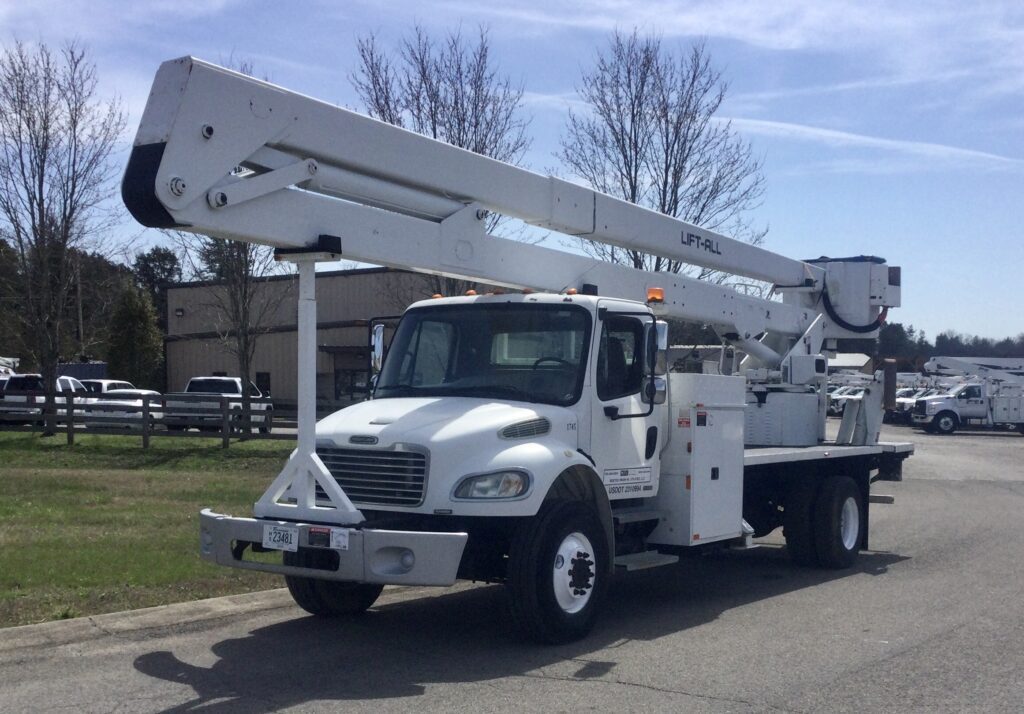In the enormous and complex world of modern infrastructure, utility trucks stand as unsung heroes, tirelessly working behind the scenes to ensure the smooth functioning of our daily lives. These vehicles, often overlooked by the general public, play a pivotal role in maintaining, repairing, and upgrading the essential services that we all rely on. From power lines to water systems, from telecommunications to waste management, utility trucks are the lifeblood that keeps our cities and towns running efficiently.
Utility trucks, also known as service trucks or work trucks, are vehicles specifically designed to perform various tasks and provide essential services in different industries. These versatile vehicles play a crucial role in modern infrastructure development, contributing to the growth and maintenance of our cities and communities. From construction sites to emergency response situations, utility trucks are indispensable in ensuring the smooth functioning of our society.
1. The Role of Utility Trucks in Infrastructure Development
Infrastructure development is the backbone of any thriving society. It encompasses the construction and maintenance of roads, bridges, buildings, power grids, and other essential facilities. Utility trucks play a very important role in this process by providing the necessary tools and equipment to carry out these tasks efficiently. Whether it’s transporting heavy machinery, repairing power lines, or maintaining telecommunications networks, utility trucks are at the forefront of infrastructure development.
2. Types of Utility Trucks and Their Functions
Utility trucks come in various types, each designed for specific functions and industries. Some common types include bucket trucks, crane trucks, dump trucks, and service body trucks. Bucket trucks are equipped with an extendable boom and a bucket at the end, allowing workers to reach elevated areas for tasks such as tree trimming or repairing overhead power lines. Crane trucks have a hydraulic crane mounted on the chassis, enabling them to lift and move heavy objects. Dump trucks are used for transporting loose materials such as sand or gravel, while service body trucks have compartments and racks for storing tools and equipment.
3. The Evolution of Utility Trucks in Modern Times
The history of utility trucks dates back to the early 20th century when they were primarily used for delivering goods and services. Over time, technological advancements have transformed these vehicles into highly specialized machines capable of performing complex tasks. The introduction of hydraulic systems revolutionized utility truck functionality by enabling precise control over lifting and moving heavy loads. Additionally, advancements in materials and manufacturing techniques have made utility trucks more durable and efficient, increasing their overall effectiveness in infrastructure development.
4. The Importance of Utility Trucks in Emergency Situations
Emergency situations require swift and efficient response to minimize damage and save lives. Utility trucks play a crucial role in such scenarios, providing essential services and support. During natural disasters like hurricanes or earthquakes, utility trucks are deployed to restore power, repair damaged infrastructure, and clear debris. In medical emergencies, utility trucks equipped with medical equipment can serve as mobile clinics or emergency response units. Their versatility and mobility make utility trucks invaluable assets in emergency situations.
5. The Economic Benefits of Using Utility Trucks
Utility trucks not only contribute to the development of infrastructure but also have significant economic benefits. By efficiently carrying out tasks that would otherwise require manual labor or multiple vehicles, utility trucks save time and resources. This increased efficiency translates into cost savings for businesses and governments alike. Moreover, the use of utility trucks in infrastructure development stimulates economic growth by creating job opportunities and attracting investments. The presence of well-maintained infrastructure also enhances the overall quality of life for residents, making an area more attractive for businesses and residents.

6. The Future of Utility Trucks in Infrastructure Development
As technology continues to advance, utility trucks are expected to undergo further improvements and innovations. One emerging trend is the integration of electric power trains in utility trucks, reducing their carbon footprint and operating costs. Autonomous driving technology is also being explored, which could enhance safety and efficiency in various tasks performed by utility trucks. Furthermore, the use of advanced sensors and data analytics can optimize maintenance schedules and improve overall performance. The future of utility trucks holds great potential for increased efficiency, reduced environmental impact, and enhanced safety.
7. Safety Measures for Operating Utility Trucks
Safety is of utmost importance when operating utility trucks due to the nature of their tasks and the potential risks involved. Operators must undergo proper training and certification to ensure they have the necessary skills to handle these vehicles safely. Regular inspections and maintenance checks are essential to identify any potential issues that could compromise safety. Additionally, wearing appropriate personal protective equipment (PPE) and following established safety protocols are crucial for preventing accidents and injuries.
8. Maintenance and Repair of Utility Trucks
Proper maintenance and repair are essential for keeping utility trucks in optimal condition and extending their lifespan. Regular inspections should be conducted to identify any signs of wear or damage, such as worn-out tires or faulty hydraulic systems. Routine maintenance tasks, including oil changes, filter replacements, and lubrication, should be performed according to the manufacturer’s recommendations. When repairs are needed, it is important to use genuine parts and seek the assistance of qualified technicians to ensure the safety and reliability of the vehicle. And one such leading provider of utility trucks sales and service in Tennessee is Utility Equipment Services.
9. The Crucial Role of Utility Trucks in Modern Infrastructure
In conclusion, utility trucks play a vital role in modern infrastructure development. Their versatility, efficiency, and ability to perform a wide range of tasks make them indispensable in various industries. From construction sites to emergency response situations, utility trucks contribute significantly to the growth and maintenance of our cities and communities. While there are environmental concerns associated with their use, efforts are being made to reduce their impact through technological advancements and sustainable practices. As we look towards the future, utility trucks will continue to evolve, becoming more efficient, environmentally friendly, and safer, further enhancing their crucial role in infrastructure development.
Utility Equipment Services, based in Tennessee, is a leading provider of these essential vehicles. We offer a wide range of utility trucks for sale and rental, catering to the diverse needs of our clients. Whether you need a bucket truck for aerial tasks or a digger derrick for heavy-duty digging operations, Utility Equipment Services has got you covered.
Our services do not stop at sales and rentals. Recognizing that these specialized vehicles require expert care and maintenance, Utility Equipment Services also provides general service and repairs. Our team of skilled technicians ensures that every utility line truck they handle is in optimal condition, ready to perform its duties effectively.
Remember, the right utility fleet can significantly enhance your operational efficiency and safety. And with a trusted provider like Utility Equipment Services by your side, you can rest assured that your utility trucks will always be up to the task.




